I have a long string (sometimes over 1000 characters) that I want to convert to an array of boolean values. And it needs to do this many times, very quickly.
let input: String = "001"
let output: [Bool] = [false, false, true]
My naive attempt was this:
input.characters.map { $0 == "1" }
But this is a lot slower than I'd like. My profiling has shown me that the map is where the slowdown is, but I'm not sure how much simpler I can make that.
I feel like this would be wicked fast without Swift's/ObjC's overhead. In C, I think this is a simple for loop where a byte of memory is compared to a constant, but I'm not sure what the functions or syntax is that I should be looking at.
Is there a way to do this much faster?
UPDATE:
I also tried a
output = []
for char in input.characters {
output.append(char == "1")
}
And it's about 15% faster. I'm hoping for a lot more than that.
